Pregnancy massage in London: Get the ultimate guide, expertly crafted to support your unique needs as an expectant mother. Pregnancy is a transformative journey marked by significant physical and emotional changes, including lower back strain, pelvic discomfort, and hip tension. These alterations are largely attributed to the hormone relaxin, which loosens ligaments, particularly in the pelvic region, making it crucial for expectant mothers to find relief from these symptoms.
As pregnancy progresses, women may experience heightened levels of anxiety and occasional feelings of depression, further exacerbating prenatal stress. However, regular massage therapy can provide a powerful antidote to these symptoms. Research suggests that babies born to mothers experiencing depression during pregnancy may have elevated levels of cortisol, the primary stress hormone, highlighting the importance of stress management during this period. Moreover, studies have demonstrated that massage therapy can significantly reduce anxiety and stress in expectant parents, fostering a positive environment for the baby even before birth.
In light of these findings, it is essential to recognise the significance of pregnancy massage as a vital component of prenatal care, rather than merely a luxury. By understanding the various massage techniques employed, expectant mothers can make informed decisions about their care and take control of their well-being. In this comprehensive guide, we will delve into the most effective massage techniques for pregnant women, providing valuable insights and practical tips for a healthy and fulfilling pregnancy journey.
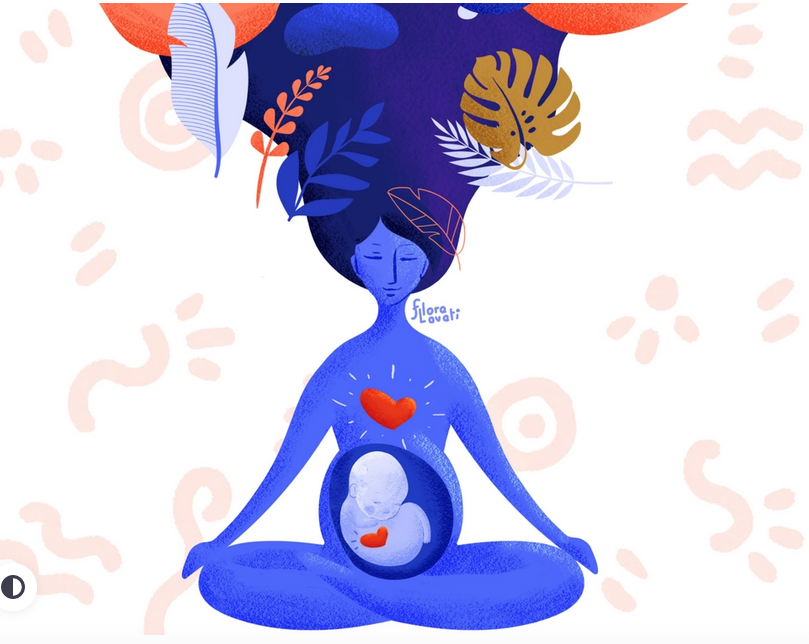
What is a pregnancy massage?
Pregnancy massage is a specialised form of massage therapy designed to provide relief and relaxation to expectant mothers during their prenatal and postnatal journey. This gentle and nurturing technique is typically performed on a specially designed pregnancy massage table, with a session duration of approximately one hour.
To ensure the safety and comfort of both mother and baby, most healthcare professionals recommend lying on your side during the massage to avoid compressing your uterus and baby. Pregnancy massage tables often feature specially designed pillows or bolsters to align your body on your side comfortably, allowing for optimal relaxation and reduced discomfort.
Some pregnancy massage tables may also feature a cutout design, allowing for the massage to be performed in a traditional, face-down position, which can be beneficial for mothers who experience sciatica or back pain during pregnancy. Additionally, it’s essential to follow the advice of your healthcare provider and avoid laying flat on your back during pregnancy massage, as recommended by most medical professionals.
History of Pregnancy Massage
Pregnancy massage, also referred to as prenatal massage, is a therapeutic technique specifically tailored to benefit pregnant women. Its main objective is to alleviate discomfort and promote relaxation throughout the prenatal period through the use of gentle strokes and specialised techniques.
Across various cultures, massage and rubbing have played a crucial role in healthcare during childbirth. For instance, ancient Indian Ayurvedic medical books highlight the therapist’s instructions to apply specially formulated oil onto the expanded abdominal skin of pregnant patients. Traditional Eskimo carvings depict fathers providing support and tenderly caressing their wives’ backs during labor pains. In certain Irish hospitals, doulas or midwives hold and touch women in the process of giving birth.
For thousands of years, skilled midwives have offered compassionate support and relieved the discomforts of childbirth for countless women. As massage therapy regains recognition within Western healthcare practices, pregnancy massage has emerged as one of its rapidly growing specialised applications.
Benefits of pregnancy massage
Extensive evidence has established the significant advantages of massage therapy, though only a few studies have concentrated on prenatal and postnatal massage. Nevertheless, these studies have validated the efficacy of massage during and after pregnancy, benefiting both parent and child. Let’s explore the potential benefits of pregnancy massage, fully supported by scientific research. Also known as prenatal massage, it is a specialised practice tailored to cater specifically to pregnant women. This therapeutic approach incorporates gentle strokes and techniques aimed at reducing discomfort and fostering relaxation during the prenatal period.
Pain relief
Experiencing relief from pregnancy-related muscle tension and pain: pregnancy often brings along physical discomforts, including backaches, leg cramps, and swollen ankles. However, with the aid of prenatal massage, you can find solace from these symptoms and achieve a sense of relaxation. Studies have indicated that massage therapy has proven effective in alleviating various types of pain, particularly backache and leg pain, which are frequent complaints among pregnant women. Therefore, it is highly beneficial to incorporate regular massages into your pregnancy routine, particularly if you are experiencing tight hips, sore legs, and backaches.
Improving circulation
During pregnancy, the body experiences significant changes, such as an increased blood volume. Pregnancy massage offers a valuable solution to stimulate blood flow and circulation, benefiting both the mother and the growing baby. This gentle form of massage helps reduce discomforts like swelling and edema, commonly experienced during pregnancy. By improving blood circulation and reducing fluid retention, prenatal massage effectively addresses these common pregnancy discomforts.
Reducing stress
Pregnancy can be y can be a challenging time for expectant mothers, often accompanied by increased stress and anxiety. Regular pregnancy massage sessions have been shown to reduce stress hormones and increase the production of endorphins, promoting emotional well-being.
Improved sleep
Do you have sleepless nights during pregnancy? If yes, getting massaged can help improve your sleep and its patterns. Massage has been shown to induce sleep in pregnant women quickly. It has also been shown to help you fall asleep for longer stretches. This may be related to lower stress levels after a massage.
Decreased cortisol levels
Massage during pregnancy lowers your cortisol levels, thereby boosting your mood and relieving tension and stress.
It’s a fact that stress is the greatest enemy of a person’s overall well-being, especially in the long run. So pregnancy massage promotes your overall health and well-being by lowering cortisol in your body.
Newborn’s health
Massage during pregnancy gives rise to better birth outcomes. For example, babies born to parents who receive massages during pregnancy are less likely to be born early and more likely to have adequate, optimum birth weight.
Again, these results may be directly linked to low cortisol levels in parents who received massages during pregnancy.
Postpartum Depression Reduction
A study indicates that getting massages during pregnancy reduces the risk of postpartum depression (PPD).
Bonding and Connection
Engaging in any form of nurturing touch during pregnancy can contribute to the bonding process between the expectant mother and the growing baby. Pregnancy massage allows for a calm and soothing environment that fosters relaxation and enhances the connection between the mother and the unborn child.
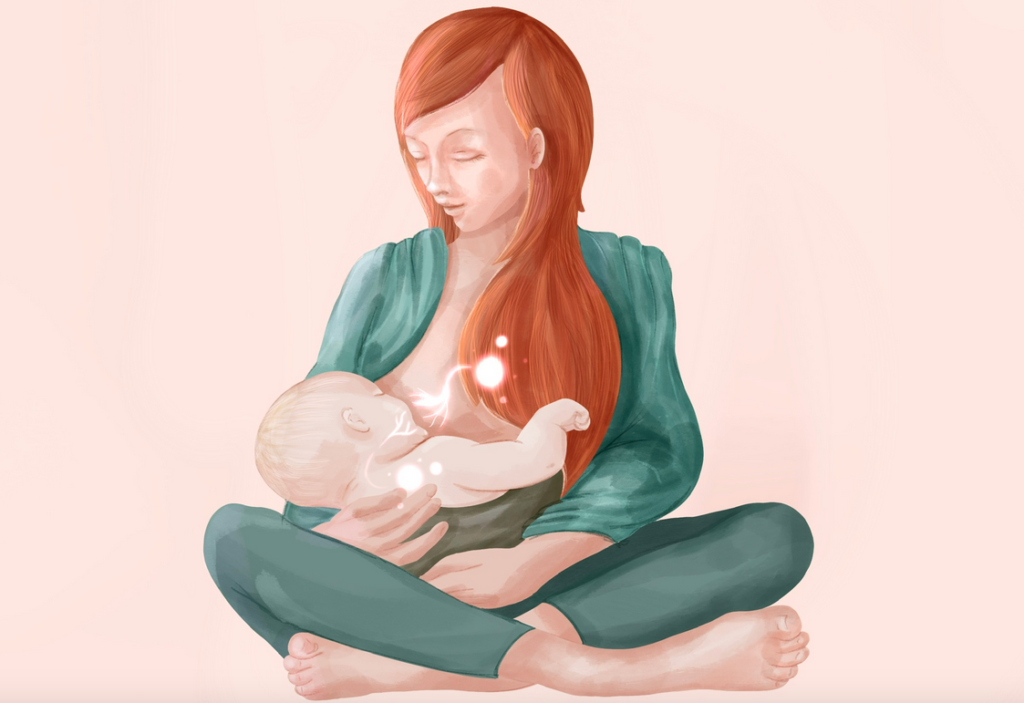
Is pregnancy massage safe?
Generally yes, if you observe a few precautions. Prenatal massage is safe after three months of pregnancy, but you should first seek the green signal from your physicist and let your practitioner know about your pregnancy. However, receiving a massage during the first three months (trimester) of pregnancy can induce morning sickness and dizziness in some people.
Despite the lack of scientific evidence, certain myths surround pregnancy massage. For example, many practitioners will avoid specific pressure points to avoid triggering contractions. However, there’s no scientific data about any magic button that can induce labor if pushed during pregnancy massage.
Indeed, there’s no link between prenatal massage and miscarriage. Most practitioners avoid entertaining clients in the first half of their pregnancy. Since most miscarriages happen during the first trimester, they do so to avoid any liability issues should a miscarriage happen. However, it’s always wise to consult your doctor before having a first-trimester massage.
Another area of concern is the fact that there’s a vast variation in training. In addition, there’s a lack of certification standards worldwide. Indeed, there’s no set minimum training for a massage therapist, let alone any widely-accepted training standards for a particular type of massage, such as pregnancy massage.
Precautions
First and foremost, you should avoid having your tummy rubbed during pregnancy massage as it causes unnecessary strain on the uterus and can make you uncomfortable. However, no data or reported cases support the notion that massaging a pregnant woman’s belly induces labor.
It’s also a good idea to avoid lying on your back during the second half of your pregnancy. It compresses your baby and uterus against the placenta, limiting blood circulation to it.
You should also avoid deep tissue work on your legs during pregnancy massage. This is because pregnant women are prone to developing blood clots–especially in the lower legs–which may dislodge due to deep tissue work. This is why most pregnancy massage practitioners use light, slow strokes on the legs to avoid any complications arising from dislodged blood clots. As for other body parts, you can have as much pressure applied as you’d like.
Another worthy consideration is ensuring that your massage therapist specializes in prenatal massage. There is no specific certification required in most countries, so it’s entirely your responsibility–for your own safety–to inquire whether your therapist has the necessary qualifications/training to get the job done.
It’s also wise to consult your doctor before receiving a prenatal massage, particularly if you have a health issue. Diabetes, fever, hypertension, abdominal pain, and bleeding involve many complications that can make pregnancy massage risky.
How often should you get a pregnancy massage?
While there’s no scientific data to support the notion that pregnancy massage is unsafe during the first trimester, most practitioners strictly avoid it. This may be because most miscarriages happen during the first three months of pregnancy. However, there’s no established link between a miscarriage and a prenatal massage.
But some women report dizziness and morning sickness after receiving a massage during their first three months of pregnancy. Still, it’s uncertain if receiving a massage causes these symptoms.
Since there are too many myths and misconceptions surrounding the topic, there’s a chance for the “placebo effect” to kick in and induce the symptoms. It’s recommended to go for therapy once a month until 27 weeks of pregnancy and then twice up to 36 weeks. After that, visits can be increased up to once a week till birth.
The general rule of thumb, as you can see, is to start by visiting your therapist once a month and then gradually frequent the visits as the birth time approaches.
In the end, it’s of utmost importance to keep your subjective wellness and feelings in view. If you’re indecisive about your own needs, you should seek consultation from your doctor and a certified prenatal therapist. A certified massage therapist should be able to advise you about how often you should get a massage and adapt the therapy based on your specific needs.
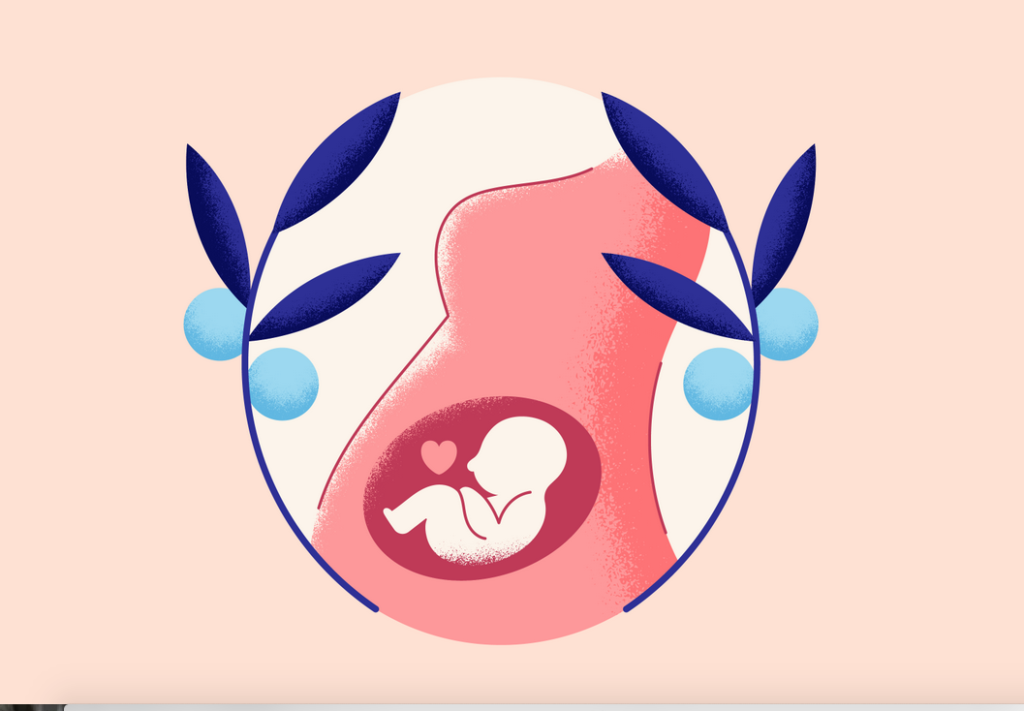
What to expect during a pregnancy massage?
It’s good to learn about a few things before going to your massage therapist for a prenatal massage. A prenatal massage session can be between 60 and 90 minutes and may last even longer. However, in most cases, it’s not less than 60 minutes.
As for the room, it will be comfortably designed for the expecting mother. It’ll be quiet and have a peaceful environment to promote relaxation and a sense of well-being.
A certified, well-trained prenatal therapist will have complete knowledge about a pregnant woman’s anatomy and physiology. They will use this knowledge and experience to recommend the best position for the massage, and which types of strokes and pressure points to avoid.
Scenting serenity: Aromatherapy for Pregnancy
Some practitioners use aromatherapy oils to amplify the effect of massage on pregnant women. Some women may be allergic to the smell of specific essential oils. If you have any such issues, you may ask your therapist to avoid using a particular oil.
It’s pertinent to mention that aromas can’t solely account for a long list of aromatherapy benefits. The fragrance alone can just create a sense of well-being in you–which is psychological in nature. This psychological feeling of well-being, in turn, can also lead to a lot of positive bodily changes. However, the genuine magic part is played by essential oils.
Aromatherapy is incredibly useful in curing muscular aches, fatigue, and insomnia during pregnancy. These oils, when rubbed, ease stress and create a feeling of relaxation in pregnant women.
Who doesn’t know our bodies have their own oil-producing glands, called “sebaceous glands,” located in the skin. These glands produce an oily secretion called “ sebum,” which protects our skin against countless microorganisms. Applying oil to our body, especially after bathing, provides similar benefits.
A BBC report, sourcing data from multiple studies, indicates that oil massages can boost a newborn’s weight gain, prevent bacterial infections, and cut infant mortality by up to 50%. Studies cited in the article indicate that oil massages, even as simple as a tummy rub, are very beneficial for the infant’s overall well-being.)
Pregnant women, especially those with complications or high-risk factors, may be asked to secure a release from their obstetric providers, which is a good practice anyway.
How to give a prenatal massage at home?
These tips can be used at home by your partner or friend to give you an excellent prenatal massage:
- Rub the back of the foot with lotion for smoother strokes. Next, rub the feet in small circles around the ankles, from the toes to both ankles. Next, using the thumbs of both hands, draw small circles under the toes. Additionally, move your thumbs down and up over your heels. You can also gently pull the toes and rub between the toes with your thumbs and index fingers. It is best to avoid pressing the heel against the ankle bone as it’s discomforting.
- Ask the recipient to lie face-down and stroke her back with both hands. (It’s best to have a specifically designed massage table with a cutout in the middle to avoid pressure on the baby, uterus, and placenta. Otherwise, don’t make a pregnant woman lie facedown too long.) Concentrate on the muscles on either side of the recipient’s spine. Then knead the muscles using your thumbs and the base of your thumbs.Using your hands, massage the scalp from the base to the hairline. Gentle stroking will help the recipient relax. You should avoid unnecessary long and deep strokes as they can make people with weak, sensitive hair uncomfortable, doing more harm than any massage form can cure.
- Using the palms of your hands or fingertips, gently press down on the neck muscles. Slide between the top of the shoulder and the base of the skull. The procedure should be performed on the posterior and both lateral sides of the recipient’s neck.
- Do not massage the stomach! If the recipient desires it, gently rub the tummy for a short time.

Myths surrounding prenatal massage
Even though pregnancy massage incorporates many benefits for an expectant mother, many myths and misconceptions surround the topic. These myths are promoted and amplified by online forums and social media and act as a significant barrier between the subject and scientific exploration of this particular massage form. Let’s take a look into the most common myths about pregnancy massage and debunk them.
1. Prenatal massage can lead to miscarriage
There are many causes of miscarriage, but prenatal massage is not one of them. Some of the common reasons for miscarriage include maternal age, improper implantation of the fertilized egg, drug use, and trauma. Needless to say, miscarriages tend to occur during the first trimester, which is why many massage service providers only accept clients who are at least in their second trimester.
2. You should not continue the massage for the entire pregnancy
This myth probably arose from the fear of hurting the pregnant woman and the baby in her belly. In fact, your body is much stronger than you think – yes, even when you are pregnant. Needless to say, many women have told us how massage therapy has made their pregnancies easier. Unless your doctor has told you to refrain from massage during pregnancy, you are always free to receive massage (although most massage therapists will not give you a massage if you are less than 12 weeks pregnant). Tell your massage therapist if you are concerned that the massage may be too stimulating for you or your baby. They can reduce the intensity and pressure while avoiding sensitive areas based on how you prefer.
3. Massaging the ankles or feet can induce labor
This is probably the most harmful myth about pregnancy massage ever invented, leading expectant mothers to believe that pregnancy massage can cause a miscarriage. Consequently, they avoid getting a relaxing massage and choose to deal with ever-increasing, unbearable body aches. Indeed, it’s safe to assume that your pregnancy massage therapist understands your body a great deal and will avoid massaging any body parts that are particularly sensitive to to-be moms.
Food and ankle massage is particularly beneficial for pregnant women suffering from swollen ankles and feet due to the increasing, crushing weight of the baby and fluids.
Do not confuse pregnancy massage with labor massage, which is a particular form of pregnancy massage meant to ease the delivery. The latter should be received after the expected date of delivery. There is a clear difference between pregnancy massage, which only relieves discomfort during pregnancy, and labor massage, which helps induce labor naturally.
How are pregnancy massage therapists trained?
Regrettably, there is currently no universally recognised minimum requirement for the education, training, or hands-on experience needed to become a pregnancy massage therapist. However, it’s important to note that in most cases, a minimum of 500 hours of education and training is required for other forms of massage. It’s worth mentioning that the availability and quality of education classes, training programs, and workshops focusing on pregnancy massage can vary greatly, depending on the level of education, training, and hands-on experience they offer.
1. Importance of qualified and experienced therapists:
When receiving a prenatal massage, it is vital to choose a licensed and well-trained therapist who is specifically certified in prenatal massage techniques. These therapists possess a comprehensive understanding of the unique needs and considerations of pregnant women, ensuring a safe and effective treatment.
2. Considerations for timing and trimester-specific precautions:
Prior to seeking a prenatal massage, it is advisable to consult with healthcare professionals, particularly if there are underlying health conditions or complications. It is important to note that certain massage techniques may not be suitable for every stage of pregnancy, making it crucial to follow expert advice to ensure the safety and well-being of both the mother and the baby.
3. Focus on comfort and proper positioning:
Prenatal massage necessitates specific positioning to accommodate the changing body of a pregnant woman. To ensure optimum comfort, safety, and appropriate support throughout the massage session, therapists employ specialized cushions and props. This attention to comfort and positioning further enhances the overall experience and effectiveness of the prenatal massage.
In London, pregnancy massage presents countless advantages for expectant moms. Nevertheless, it is crucial to approach prenatal massage cautiously, taking into account crucial factors like therapists’ qualifications, timing considerations, and proper positioning. To ensure a secure and gratifying experience, pregnant individuals seeking massage therapy should consult with healthcare professionals and openly communicate with qualified therapists.
In conclusion, pregnancy massage in London has the potential to provide expectant mothers with a range of benefits. These include physical relief, reduced stress and anxiety, improved circulation, and enhanced bonding. However, it is crucial for potential clients to prioritize their safety and comfort by consulting with their healthcare provider and selecting reputable and qualified massage therapists. Individual circumstances and medical conditions should be taken into consideration before starting any new treatments.
Best 5 Places to Get a Pregnancy Massage London – Reviewed in Detail
Pregnancy is a particular phase of a woman’s life, which involves many physical, psychological, and behavioral changes. No matter how magical you feel about your pregnancy, there may be occasional or perpetual cries and woes of backaches, leg pains, and swollen feet, not to mention a general sense of being exhausted. If you’re experiencing the same, an excellent prenatal massage is all you need to have. Incorporating pregnancy massage into your weekly or monthly routine would be great. Anyway, it should find a proper place on your priority list.
But where to get a pregnancy massage if you live in London, a city with the great hustle and bustle. Luckily, many spas in London offer pregnancy massage services. Sadly, most of them lack the required education, training, and hands-on experience to give a prenatal massage. Some have an uncomfortable environment, contributing to more fatigue than any massage can cure. Above all, even though pregnancy massage is cnsidered safe, it involves many risks and requires your massage therapist to observe several precautions. So you need an authentic, authoritative list of the best massage spas in London specializing in pregnancy massage.
That said, hunting for a good pregnancy massage spa in London is quite an uphill task. You may succeed in finding a reputable spa to receive a pregnancy massage after some time, but not without many trials and errors. To save you from the hassle, we have come up with this list of the top 5 places to get a pregnancy massage in London. Read on to learn about these places and how they compare against each other.
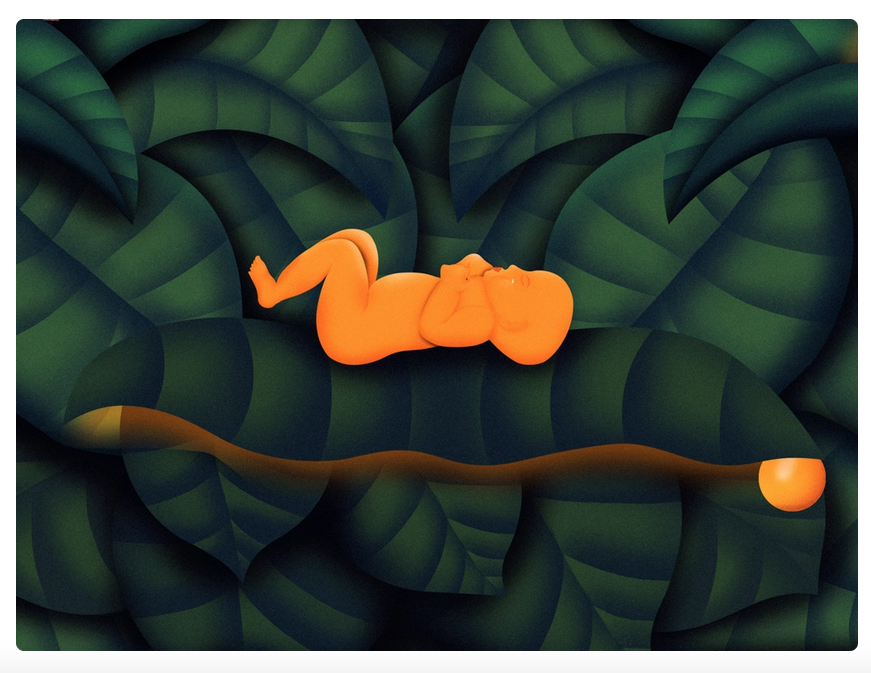
Asiatic Thai Massage, Islington, London – Overall Best
Asiatic Thai Massage is undoubtedly the best place to receive a pregnancy massage in Islington, London. Unlike other massage spas in London, they specialize in pregnancy massage with a dedicated treatment framework for every client. Indeed, pregnancy massage is one of the five services they offer, the others being: Thai Foot Massage, Thai Yoga Massage, Asiatic Thai Massage, and Back & Shoulder Massage.
The staff at the Asiatic Thai Massage are very welcoming and friendly. They receive you well and offer you an ergonomic, comfortable chair to relax in a tranquil environment before they can give you a massage. They also offer you a cup of green tea as a welcome gesture.
The Asiatic Thai Massage’s specialty pregnancy massage is designed to relieve your physical and mental stress. They have well-trained professionals who understand your pregnant body even better than you.
As a matter of fact, there’s no pregnancy massage spa in Islington, London, that has as serene an environment and trained massage therapists as the Asiatic Thai Massage. The Asiatic pregnancy Massage has garnered more than two thousand positive reviews on Treatwell with an overall rating of 4.9. The spa has a rating of 4.8 on Yelp, a 4.8 rating on TripAdvisor, and a 4.8 rating on Google My Business, a testimony to their excellent pregnancy massage services by hundreds of original clients.
We can’t recommend the Asiatic Thai Massage high enough for a pregnancy massage in London.
Great for:
- Reducing pain. The Asiatic Thai Massage is excellent for women suffering from body aches, leg pains, and swollen feet during pregnancy. The brand’s rich expertise in traditional Thai massage helps them devise a successful treatment framework for every client.
- Relaxing your mind. As mentioned, The Asiatic Thai Massage incorporates many traditional Thai massage techniques into its prenatal massage. Since traditional Thai massage is much more than standard massage therapy, it can massage your mental stress and perpetual worries away, giving you the true relaxation you deserve.
- Improving circulation. The Asiatic Thai Massage’s pregnancy massage is designed to enhance your body’s blood circulation and lymphatic drainage.
- Luxurious and tranquil environment
- Professional and friendly staff
Why choose the Asiatic Thai Massage to get a pregnancy massage in Islington, London?
The Asiatic Thai Massage is situated in the heart of Islington, London, a welcoming oasis standing right in front of yet detached from the great hustle and bustle of the city. We believe in professionalism and respect and strive hard to liberate our clients from the chaos and worries of the outside world. The light-filled yet tranquil spa is supervised by managing director Pathumpon Jatikate (Apple), a young entrepreneur and exponent of the timeless art of traditional Thai massage.
At Asiatic, we promise to manage your stress, pain, and fatigue with our pregnancy massage services. Indeed, pregnancy massage is one of our five massage therapy specialties, the others being: Thai Foot Massage, Thai Yoga Massage, Asiatic Massage, and Back & Shoulder Massage.
We believe that there’s much more to a prenatal massage than a mere foot or back rub. Instead, it’s a deep, relaxing experience that involves unwinding all your pregnancy-related troubles and massaging them away using a gentle movement of hands, fingers, thumbs, and elbows. These movements are calculated and performed with mathematical precision, made possible through years of education and training and decades of hands-on experience.
We strive hard to remove your present issues and prepare your body for the months to come. It’s more than fifteen years since we’re into the business, which has allowed us to find the right balance between delicacy and hardness–so our prenatal massage is gentle enough to be safe for you and your baby yet firm enough to work deep into your troubled areas.
We not only try to relieve your body pains but also strive hard to relax your mind through our pregnancy massage. Improved circulation and lymphatic drainage are also ensured for a more profound energy balance during our prenatal massage.
Not convinced yet?
No issues. But please don’t leave without looking at what our clients say, our ultimate testimony. As of today, we have a 4.8 rating on Trip Advisor, a 4.8 rating on Treat Well (with more than two thousand reviews). The Asiatic Thai Massage boasts a 4.8 rating on Google My Business with hundreds of client reviews.
These highly positive reviews that we have garnered from our clients on various platforms add to our confidence in claiming that Asiatic Thai Massage is indeed the best place in London to get a pregnancy massage.
Website address: Asiatic Thai Massage
Cost: £74
Phone: +44 20 7288 8702
Appointments: Book Online
Address: 93 Upper St, London N1 0NP, United Kingdom
Nearest tube station: King Cross, Holloway Road, Angel, Highbury & Islington
Based near Islington area, which is a district of the London Borough of Islington, is located in Greater London, England. From Islington’s High Street to Highbury Fields, it is a primarily residential neighbourhood of Inner London. It includes the region around the congested High Street, Upper Street, Essex Road (formerly “Lower Street”), and Southgate Road towards the east.
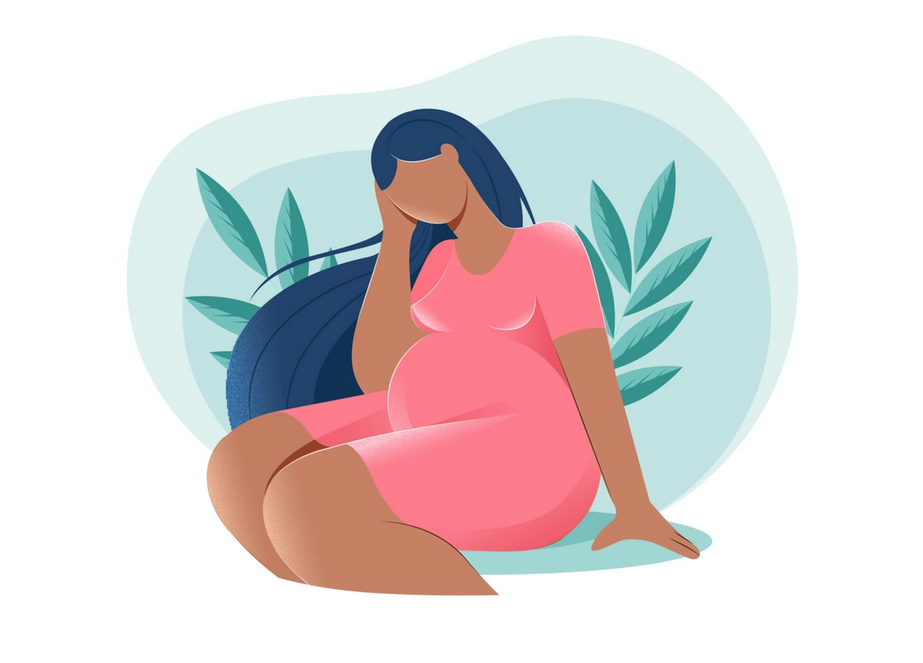
Massaggi – Best Caretaker for Pregnancy Massage in London
Massaggi is a one-stop solution for all kinds of massage therapies in London. Its three clinics in London are managed by Ben Pianese, a couch and massage therapist for over 17 years in London. Pregnancy massage is one of the five massage forms he offers in all of his three clinics in London. His awareness of the human body and how it functions was heightened after an injury, leading him to study and practice many massage modalities and healing techniques.
The pregnancy massage at Massaggi is performed on an ergonomic, on-site chair supported by pillows. You lie comfortably on your stomach with a unique body cushion under your body while your head rests on a pillow.
They make minor adjustments to every client’s position as everybody is different. A large cushion is provided during the session for easy movement without exposure. Even though their rooms are properly heated, you can ask for a blanket for extra warmth.
Massaggi has received many positive reviews on Yell, Facebook, and TripAdvisor with an overall 5-star rating, a testimony to Massaggi’s excellent pregnancy massage therapy expertise. We’re impressed by how nearly every reviewer has admired Ben Pianese’s professionalism, understanding of the human body, and healing expertise.
As already mentioned, one of the most impressive things about Massaggi is that they employ body-profiling to personalize the pregnancy massage based on your unique body needs. This allows them to identify and focus on hotspots that need special attention. For example, they can employ body-profiling to learn more about your current muscular state and devise a massage plan based on the muscle’s condition.
Great for:
- Stress reduction
- Instant and lasting pain relief
- Faster turnarounds
- Deep tissue regulation (done gently)
- Body profiling. Body profiling lets your massage therapist at Massaggi give you an entirely customized prenatal massage based on your specific body needs.
Cost: 60 mins/£80
Phone: 020 7226 4502
Appointments: massaggi.co.uk/
Address: 112 Marylebone High St, Marylebone, London W1U 4SA
Nearest tube station: Oxford Street, Bond Street, Marylebone Station, Baker Street.
Based near Marylebone area: Marylebone is a neighbourhood in the City of Westminster in the West End of London. Its southern border is formed by Oxford Strip, the busiest retail street in Europe. A former metropolitan borough and ancient parish, it united in 1965 with the boroughs of Westminster and Paddington to create the new City of Westminster. Two miles to the northwest of Charing Cross is Marylebone station.
The ESPA Life at CORINTHIA – Best luxury spa for Pregnancy Massage in London
ESPA Life at Corinthia, located within the prestigious Corinthia Hotel in London, is the ultimate luxury spa experience. As a leading luxury spa, ESPA Life at Corinthia prides itself on delivering unparalleled attention to detail and exceptional five-star customer service. ESPA Life at Corinthia offers luxurious amenities and treatments that are truly worth the investment, despite premium prices.
For instance, the SPA EXPERIENCE PASS, priced at £165, grants access to the state-of-the-art thermal spa facilities, including a vitality pool, amphitheater sauna, black marble steam room, and relaxing sleep pods – the perfect way to unwind and rejuvenate.
The expertly trained therapists at ESPA Life at Corinthia also offer Theragun Percussive Therapy, a range of rejuvenating facials, and customised massages tailored to individual needs. For expectant mothers, ESPA Life at Corinthia offers the ESPA Blissfull Maternity package, a 90-minute prenatal massage experience that is sure to leave them feeling relaxed and rejuvenated. With prices starting at £275, this luxurious treatment is an indulgent treat for any new mom-to-be.
Great for:
- Aesthetics
- Luxury
- Relaxation
Cost: 60mins / £225
Phone: +44 (0) 20 7321 3050
Appointments: espalifeatcorinthia.com/
Address: ESPA Life at CORINTHIA, The Corinthia Hotel, Whitehall Place, London, SW1A 2BD
Nearest tube station: Victoria Station
Based near Victoria and Paddington area: The City of Westminster includes Victoria as part of Central London. It bears the name of Victoria Station, a significant transportation hub.
The nearby Victoria Street inspired the station’s name. Streets including Victoria Street, Buckingham Palace Road, Wilton Road, Grosvenor Gardens, and Vauxhall Bridge Road that are next to or very close to the station are referred to by this name. Victoria is primarily made up of commercial real estate, private and public housing, and retail establishments along the main roadways.
The Lanesborough Club & Spa – Best For Pregnancy Massage In London
The esteemed Lanesborough Club & Spa, a premier private members’ health & fitness club and spa in London, offers an unparalleled pregnancy massage experience. As a top destination for expecting mothers seeking a rejuvenating and therapeutic treatment, the spa’s Rose Pregnancy Massage package is a must-try.
For £160, clients can indulge in a 60-minute session, or upgrade to a 90-minute treatment for £205. This comprehensive treatment includes the use of heated Himalayan poultices, applied in a soothing rhythmical flow over specific sacred marma points on the body, promoting relaxation and relief.
The 90-minute package also features a luxurious blackcurrant and Himalayan salt body scrub, leaving skin feeling soft and nourished. Located within one of London’s top 5-star hotels, the Lanesborough Club & Spa provides a serene and tranquil ambiance, making it an ideal setting for expectant mothers to unwind and rejuvenate.
Great for:
- Ultimate luxury
- Dry skin targeting
Cost: 60mins / £160
Phone: +44 20 7333 7064
Appointments: lanesboroughclubandspa.com/the-club-spa/
Address: 2 Lanesborough Place SW 1, London SW1X 7TA, United Kingdom
Nearest tube station:: Victoria train station
Based in central London near area: Victoria Street follows an east–west axis from Victoria station to Westminster Abbey’s Broad Sanctuary.
Cardinal Place, which built in 2006 and is located across from Westminster Cathedral, has a number of eateries, banks, and stores, including a Marks and Spencer. In front of Westminster City Hall, farther down the street, there is a sizable House of Fraser department store (formerly the Army & Navy).
The Department for Business, Energy and Industrial Strategy building, the Windsor House offices of Transport for London, and the former New Scotland Yard building are all located at the Broad Sanctuary end (headquarters of the Metropolitan Police Service from 1967 to 2016).
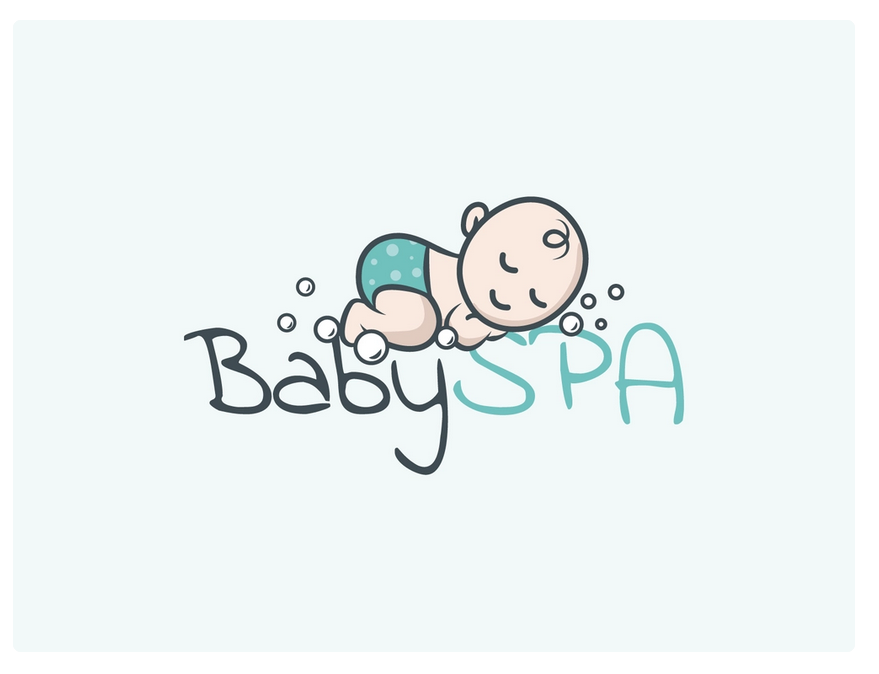
The House of Elemis – Best For Massage for Pregnancy Near Me
The House of Elemis, a renowned spa destination, offers a diverse range of massage services that cater to the unique needs of expectant mothers. Their prenatal massage, expertly crafted to promote deep tissue relaxation, provides a gentle and soothing experience that benefits both the body and mind. Additionally, the skilled therapists at The House of Elemis work to nourish and hydrate the skin, balancing its tone and leaving it looking radiant and healthy.
For a truly customised experience, The House of Elemis’ pregnancy massage is performed on a specially designed beanbag that has been crafted with the needs of mummy-to-be in mind. Perfect for expectant mothers seeking relaxation, rejuvenation, and a sense of calm, this massage therapy is an excellent way to alleviate common discomforts associated with pregnancy. Great for:
Great for:
- Dried skin
- Tension release
Cost: 60mins / £220
Phone: +44 20 7499 4995
Appointments: flemings-mayfair.co.uk/the-house-of-elemis
Address: 2 Lancashire Ct, London W1S 1EX, United Kingdom
Nearest tube station: Oxford Street & Bond Street
Based near West End area: The Western and Paddington area, commonly referred to as the London West End districts that includes parts of West and Central London..

Frequently Asked Questions
Can I receive a prenatal massage at any stage of pregnancy?
Yes, contrary to popular belief, massage is safe throughout pregnancy. A mum-to-be can receive a pregnancy massage at any stage of pregnancy–for example, during the first, second, or third trimester–given she’s in a good health state.
Some practitioners avoid giving pregnancy massages to women in their first trimester. They do so to avoid liability issues because most miscarriages happen during the first 12 weeks of pregnancy. Otherwise, there’s no link between a miscarriage and a pregnancy massage.
Who should avoid getting a pregnancy massage?
The following people should get clearance from their doctor before receiving a prenatal massage:
- Those experiencing nausea, vomiting, or morning sickness
- Those at high risk of miscarriage
- Those having a high-risk pregnancy, such as placental abruption (placenta slightly detached from the wall of the uterus) or premature delivery
Why is side-lying important during a prenatal massage and pregnancy in general?
Side-lying is done when the patient feels unable to lie on her stomach. This varies from client to client, but we generally recommend transitioning to the side-lying position in mid-pregnancy to reduce pressure on the vena cava. Stress on the vena cava affects blood flow to the mother and baby.
How is pregnancy massage different from regular massage?
There’s nothing like a regular massage. Massage has hundreds, if not thousands, of forms that differ significantly. If you prefer a particular form of massage, another person may very well dislike it.
Pregnancy massage, just like any other massage, is tailored to the unique needs of a mum-to-be, in which safety is of utmost importance.
Your massage therapist may avoid certain areas or pressure points and use small, light strokes instead of long, deeper ones to prevent inconvenience to your pregnant body. Some pregnancy massage therapists, such as Massaggi and Asiatic Thai Massage, carry out body-profiling to make the massage more personalized for you.
What’s the best position to receive a prenatal massage?
Lying on your side with your belly supported by pillows or bolsters is the most stable and comfortable position for you and your baby. The pregnancy massage table is specifically designed for an expectant mother. It may have a cutout in the middle so that you can lie facedown, which is the best position for almost every kind of massage. Some massage tables are designed so that you can lie on your back during the massage. These tables can be propped up so that you can lie on your back in a semi-seated position. Some of these tables can also be elevated at the legs to reduce swelling.
The latter type of pregnancy massage table is safest as it doesn’t put pressure on your placental blood vessels and those in the foot carrying the blood from the remotest parts back to the heart.
Should I get my abdomen massaged during a prenatal massage?
Yes, it will bring the ultimate comfort to you. However, most pregnancy massage spas avoid massaging the belly unless requested by the client.
You can give yourself a belly massage during pregnancy. However, using short and lighter strokes is advisable. Using a good lotion or oil is also recommended.
What kind of clothing do I wear for a pregnancy massage? Do I need to remove my clothes?
A pregnancy massage can be performed in as much or as little clothing as you are comfortable wearing–we at Traditional Thai Massage leave it to the client’s discretion. We usually recommend that you leave your undergarments on and let’s cover them with a towel so that only the area to be massaged is exposed.
Is pregnancy massage painful?
Massages in stiff or inflamed areas can be uncomfortable and can be painful the next day. However, massage pressure can be as light or deep as needed. We strive hard so that you always feel comfortable and enjoy your massage. If you feel any discomfort, please let your therapist know immediately.
Is aromatherapy beneficial for pregnant women?
Contrary to popular notions, massaging essential oils during pregnancy has a lot of benefits for pregnant women. A study shows that aromatherapy can significantly reduce stress and enhance immune function in pregnant women. Many other studies have already proved the efficacy of oil massage for newborns in boosting weight gain, preventing bacterial infections, and cutting infant mortality up to 50%.
How often should I get massages during pregnancy?
This is entirely up to you. There is no standard answer because each woman and pregnancy are different. If you are experiencing back pain, muscle pain, leg cramps, insomnia, swelling, etc., we recommend that you come once a week during the last trimester of pregnancy.
We also suggest that you start by receiving a prenatal massage once a month during the first trimester and then gradually frequent your visits to your massage therapist. Getting a prenatal massage once a week is advisable in the last trimester.
during pregnancy. The answer to your question, by and large, depends on your health condition and personal needs. You may want to receive more massages during the first trimester based on your physical and emotional requirements.
How soon can I come back after delivery for a postnatal massage?
If you have a healthy pregnancy and delivery with no significant complications, you can come for a postnatal massage as soon as you feel good to go. However, in the case of a cesarean section, it is usually necessary to wait at least six weeks for the scar tissue to heal.
Are there any areas that should not be massaged during pregnancy?
Generally, there are no areas to avoid during a pregnancy massage. However, it doesn’t, in any way, imply that you should take no precautions. Instead, longer and deeper strokes should be avoided in some areas, such as the belly and legs.
Dislodged blood clots may arise due to rigorous massage techniques, giving rise to a set of complications. However, the widespread belief that massaging certain areas leads to miscarriages is baseless.